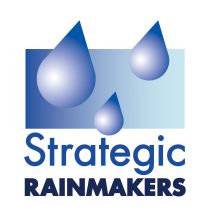I’ve been helping to build different kinds of communities over the years, both online and offline. In the old days it was technical bulletin board systems (BBS) or events and of course, more recently online communities. Anyone can start an online community but few are able to overcome all the hurdles they almost inevitably present.
One hurdle is engagement. If you’re going to build a community it has to be a living entity and living entities require care and feeding. Many online communities lack participation. Or, if there is participation it is limited to certain topics or threads. Even some of the most reputable publishers have this problem. If you’re going to set up a community, someone needs to oversee it and management it which brings me to my next point: Policies.
When people consider online community policies they tend to look at the problem in black and white terms: Either they’re going to sanitize user-generated content to the point where nothing but positive comments appear or they’re going to allow all posts which results in offensive material or out-of-context direct marketing messages. There is middle ground, which is where a lot of communities end up.
As for discussions, that’s what communities are all about. To have a living community, there have to be active dialogs occurring which brings me back to care and feeding. The only thing worse than no discussions or comments is perfectly valid questions and comments that have been completely neglected. It’s even worse when there are pages of questions or comments that stand alone, neglected. When that happens, people participate less or stop participating all together which can result in a downward spiral.
Some high tech companies have learned the hard way that setting up a community even if well-managed can still backfire. Engineers tend to be a very candid audience. If a product stinks they say so in very specific terms. One company set up a community to rally participation around a particular initiative but the quality of the products related to the initiative had several technical shortcomings that became all too obvious in the community. Of course, the same things were being said outside the community in the media but the point is the community was established to help propel the popularity of the initiative and exactly the opposite occurred. The story gets worse from there…
Another “gotcha” is underestimating what the task of community development really involves. Technologically speaking, it’s a snap to create an online community but what resources will be allocated to it over the long term? What resources will be allocated if it grows by X, Y or Z percent? What happens if it doesn’t grow? Failing to have a Plan A let alone a Plan B and Plan C is a big mistake. The unknown can and probably will kick your hind parts.
Financing is also an issue. What will the community cost to run and how will that be supported? If you have enough budget, great. Focus on the quality of content, care, and feeding. If you don’t, it’s a mistake to assume advertising will save you. Quite often people assume they’ll make a killing on advertising only to discover a huge disconnect between reality and their original expectations.
My last point (although this is not a comprehensive list) is viability. Why should someone join your community? How many other communities have they joined and more importantly in how many communities are they active participants? You will probably never really know but again there are a lot of assumptions made about how popular a community will become which is often followed by disappointment. Sure, there are communities that take off because they’re centered around a hot topic, a celebrity or folk hero is involved, the timing and focus hit a sweet spot, or the right amount of research, testing and effort went into it.
Bottom line, assumptions and outcomes often differ. It’s not just about money, or content, or good management; it’s about all those things and more.












